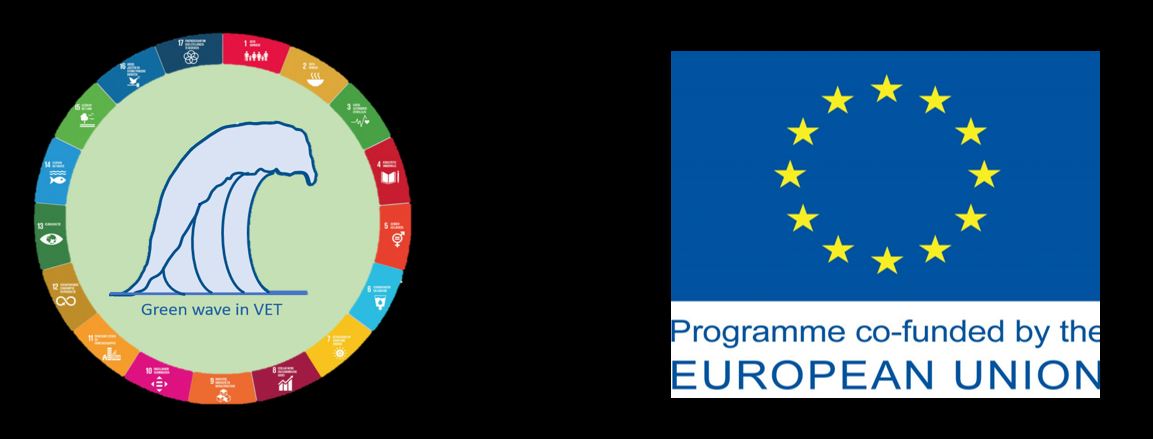The skills agenda of the EU (2020) indicates specific “green-skill priorities”.
With regard to construction it states the lack of skills is evident with regard to
design, technologies and ecological materials;
skills development needs come to light in areas such as energy and resource efficiency, decentralized solutions for renewable energy, circularity, digitization and the renovation of existing buildings in compliance with accessibility requirements;
the availability of skilled construction workers, essential for the success of the “renovation wave” foreseen in the European Green Deal and, subsequently, in Next Generation EU.
Our project addresses the issue of sustainability by focusing on the “green” transition in the construction sector.
The questionnaire intends to understand how VET contexts promote sustainable education and through which projects and actions.
Here the outcome of the questionnairs for teachers and students and the recommendations.
Recommendations:
The results analyzed allow us to highlight some teachers’ needs of a predominantly training nature. The difficulties encountered in putting sustainable development interventions into practice, in fact, in line with what has been expressed by UNESCO- UNEVOC, mainly concern the lack of skills of the teacher in education for sustainable development:
lack of awareness of sustainability, of the challenges society needs to address both the local and global level and the potential role of educators and students;
lack of practical skills and action competences in relation to education for sustainable development (competences expressed by the document Learning for the future of UNECE – framework which presents a significant set of categories reflecting a wide range of learning experiences).
Considerations
This also entails difficulties in integrating the objectives of the 2030 Agenda into one’s teachings as well as possible effects on the development of students’ green skills. The teachers also highlight a lack in terms of the educational offer of their institute in terms of sustainability and development of green skills that does not respond to market demands, in line with the premise made at the beginning of a lack of skills in the sector building that needs to be filled.
These aspects emerged and were confirmed by the students.
The students’ answers highlight some crucial points:-
Poor knowledge of the concept of sustainability and above all of the objectives of the 2030 agenda (quite in line with what was highlighted by the teachers)
A not entirely positive perception of the promotion of sustainability at school and by the school
These aspects are more evident in questions with the “I don’t know” option, unlike in questions with the possibility of a yes/no answer, the perception detected tends to be more positive.
However, a positive datum emerges from the analysis of the questionnaire and from a reading of the activities carried out during the training days in Horsens, i.e. a good mastery by the teachers of active and student-centred teaching practices capable of developing the knowledge, skills and the attitudes of the students so that they can plan and act with sustainability in mind (GreenComp framework) and of evaluation tools capable of certifying the skills acquired by the students.
In conclusion, we can say that both in terms of teacher training and in the development of the pedagogical-didactic model, it is necessary to work on green skills with reference to the European framework which must become the guiding tool for planning interventions on sustainable development.
